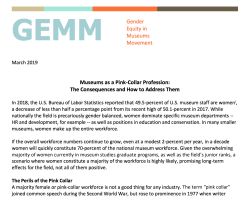Teachers and Leaders: What Kind of Museum Leader Are You?
Posted: September 9, 2015 Filed under: Leadership, Learning Organizations, Museum | Tags: lead from where you are, Leadership Leave a commentIn my world we opened an exhibition this week, but more importantly we began school. As the school’s curator I am embedded with its Humanities classes so this week, once again, I found myself in the classroom. And as I sat through opening days, I was reminded, not for the first time, how much the life of the classroom is reminiscent of staff meetings, how much good teachers are good leaders and what each has to learn from the other.
Some teachers open the year with a logistic framework just as some leaders begin with a run down of the week, month or season to come. Here is the list of readings. Your assessments (read events, exhibitions, publications if you’re in the museum world) will take place on these dates. The marking period ends here. In a museum we’re reminded of our to-do lists and our roles. Or we remind others. Everyone introduces themselves and we learn a little bit about the teacher. If it’s a first meeting for a new director something similar happens. All good. All useful.
On Thursdays though I went to English with a very talented teacher who took a slightly different tack. He began by asking students to tell him one thing about themselves. The answers ranged from someone who has a grass allergy to their number of siblings, number of pets, types of hobbies. Then he asked everyone to read Tom Wayman’s poem “Did I Miss Anything?” If you haven’t read it, you can find it here. While it’s a poem weighted with sarcasm, the message is clear: bring your best self to class; participate authentically; understand that the time devoted to class or to staff meetings can never be recaptured. The discussion was aimed at the importance of full participation. At one point the teacher asked the class whether they had experienced having a class come to an end and realizing they hadn’t any real idea what had happened. I suspect I’m not alone in having a similar thing happen at meetings.
Which brings me to the question of how meetings (department, staff, program) are different or similar than classrooms. I haven’t met too many leaders willing to be as direct as this teacher is and yet I wonder how that would work out. I’ve known leaders whose idea of being direct was entirely transactional. I have a vision. I will tell you how that vision should be fulfilled. You will do it. We will talk. I will point out how you could be better next time. (Or the abbreviated version which goes something like, “Bring me a rock. No, not that rock, a different rock.” And yet what happened in class this week wasn’t that at all. It was expressed as a hope that changes in individual behavior would create an improved group dynamic. The hope that students who do the reading and come with one thought they want to explore have the power to change the class. The hope that by being truly present, by speaking in response to what’s on the table they will drive the conversation forward and create something. When that happens, staff don’t have to ask, “Did I miss anything?” when something keeps them from a meeting. They know the answer is yes.
So what’s your leadership style when it’s your turn to run a meeting? Have you mastered asking for behavioral changes without sounding like a preemptory librarian? Have you thought about how asking for change from individuals creates change in the group? Do you have the patience to wait for group chemistry to happen or would you rather have your wishes fulfilled immediately? And which is more important, that you push and prod your staff to be the best they can be or that you get the job done? Because to be fair that’s probably the biggest difference between the classroom and the museum’s back office. In a classroom the “product” if you will, is the student, that she absorbs content, yes, but more importantly that she’s nurtured to be the kind of person we want around the museum staff table some day. Museums, in fact most businesses or non-profits, want that person to arrive fully formed: smart, intentional, a good listener, creative. Sadly, not everyone learns that in the classroom. Maybe you don’t need to, but if your meetings sometimes suffer from too much window gazing or under the table texting, maybe asking for change isn’t a bad thing? After all who can object to the opportunity to be their best selves?
As always, we’d love hearing how you lead.
Joan Baldwin










